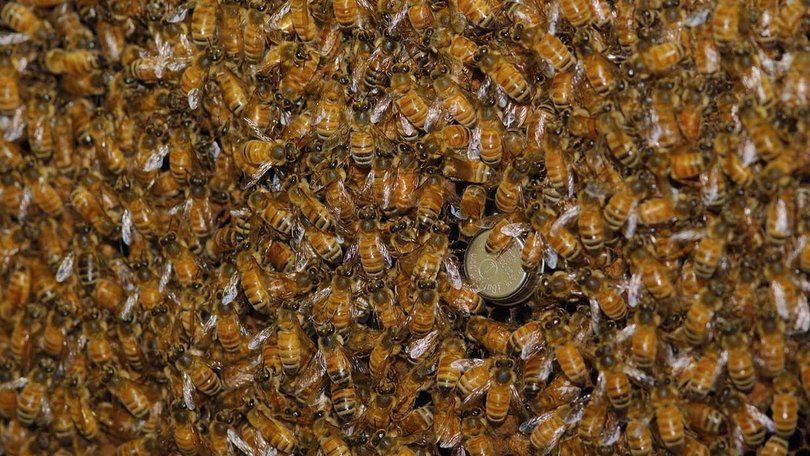Washington state: Police sent ducking for cover as 250 million bees escape after US truck rollover

There was a buzz in the air in northwestern Washington state as about 250 million honeybees escaped a commercial truck that overturned.
The truck hauling an estimated 32 tonnes of honeybee hives rolled over around 4am on Friday close to the Canadian border near Lynden, the Whatcom County Sheriff’s Office said in social media posts.
It appears the driver did not navigate a tight turn well enough, causing the trailer to roll into a ditch, county emergency management spokeswoman Amy Cloud said.
Sign up to The Nightly's newsletters.
Get the first look at the digital newspaper, curated daily stories and breaking headlines delivered to your inbox.
By continuing you agree to our Terms and Privacy Policy.The driver was uninjured.
Deputies, county public works employees and several bee experts responded to the scene. The box hives later came off the truck, and local beekeepers swarmed to help recover, restore and reset the hives, according to the sheriff’s office.
The plan is to allow the bees to return to their hives and find their queen bee in the next day or two, according to the sheriff’s office. The goal is to save as many of the bees as possible.
“Thank you to the wonderful community of beekeepers: over two dozen showed up to help ensure the rescue of millions of pollinating honey bees would be as successful as possible,” the sheriff’s office post said.
The public was advised to avoid the area on Friday, and sheriff’s deputies dove into in their squad cars at times to avoid being stung.
Honeybees are crucial to the food supply, pollinating over 100 crops including nuts, vegetables, berries, citrus and melons. Bees and other pollinators have been declining for years, and experts blame insecticides, parasites, disease, climate change and lack of a diverse food supply.
Beekeepers often transport millions of bees from one location to another because leaving them in one location for too long can deplete resources for other pollinators.
